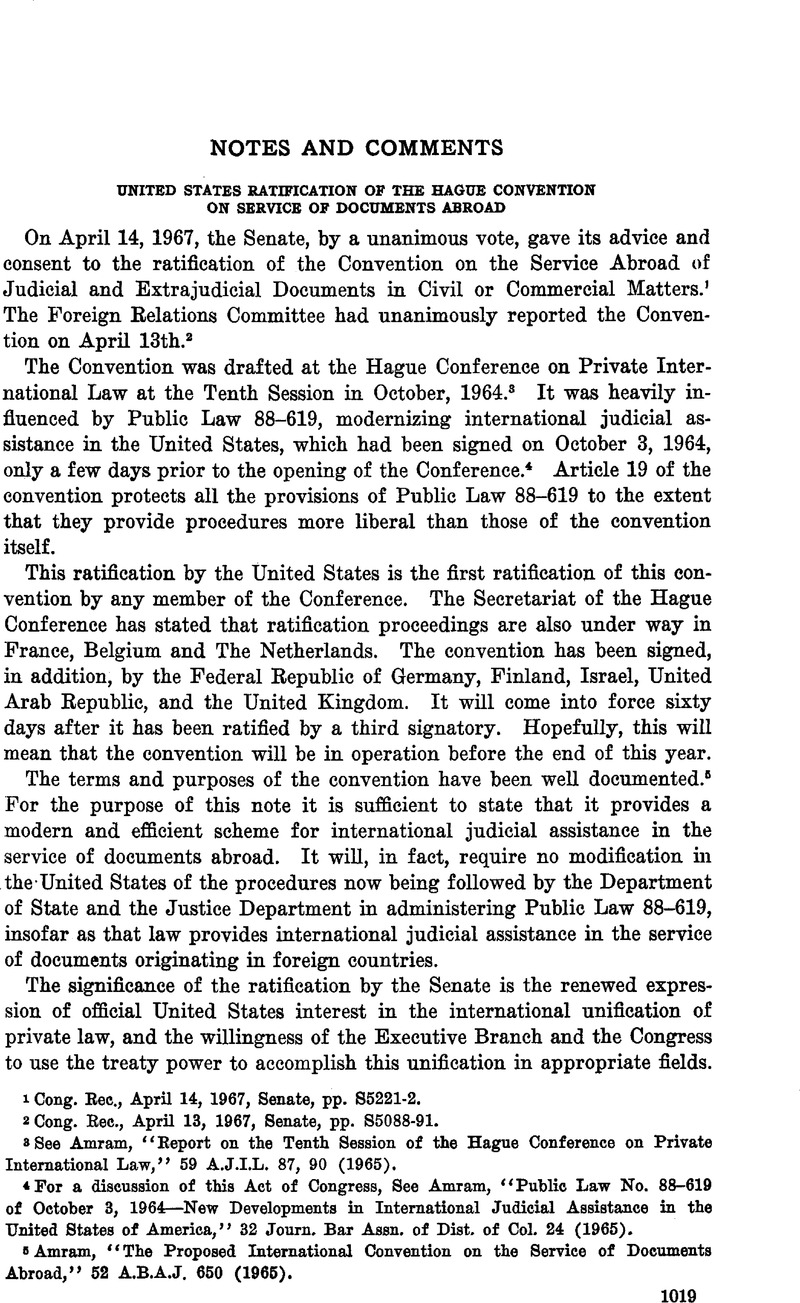No CrossRef data available.
Published online by Cambridge University Press: 28 March 2017

1 Cong. Rec, April 14, 1967, Senate, pp. S5221-2.
2 Cong. Rec, April 13, 1967, Senate, pp. S5088-91.
3 See Amram, “Report on the Tenth Session of the Hague Conference on Private International Law,” 59 A.J.I.L. 87, 90 (1965).
4 For a discussion of this Act of Congress, See Amram, “Public Law No. 88-619 of October 3, 1964—New Developments in International Judicial Assistance in the United States of America,” 32 Journ. Bar Assn. of Dist. of Col. 24 (1965).
5 Amram, “The Proposed International Convention on the Service of Documents Abroad,” 52 A.B.A.J. 650 (1965).
6 See Nadelmann, ‘ ‘ The United States at the Hague Conference on Private International Law,” 51 A.J.I.L. 618, 619 (1957); Nadelmann and Reese, “The American Proposal at the Hague Conference to use the Method of Uniform Laws,” 7 A. J. Comp. Law 239 (1958); Nadelmann, “The Hague Conference on Private International Law Ninth Session,” 9 A. J. Comp. Law 583, 587 (1960); Amram, “Uniform Legislation as an Effective Alternative to the Treaty Technique,” 1960 Proceedings, American Society of International Law 62; Nadelmann and Reese, “The Tenth Session of the Hague Conference on Private International Law,” 13 A. J. Comp. Law 612, 614 (1964); Nadelmann, “The United States Joins the Hague Conference on Private International Law,” 30 Law and Contemporary Problems 291, 302 (1965).
7 See Report of the U. S. Delegation to the Tenth Session of the Hague Conference on Private International Law, 52 Dept. of State Bulletin 265, 269 (1965). In the matter of the recognition of foreign judgments, the question of selectivity led the Hague Conference, at its April, 1966, special session, to prepare a proposed draft of a multilateral convention with a “bilateralization” clause. Ibid, at pp. 271-272; Nadelmann and von Mehren, “The Extraordinary Session of the Hague Conference on Private International Law,” 60 A.J.I.L. 803, 804 (1966).
8 Text in 9 A. J. Comp. Law 705 (1960). Further, the International (Borne) Institute for the Unification of Private Law circulated in December, 1966, a draft convention providing a uniform law on the form of wills. The foreword says that the purpose is to go “beyond the provisions finally agreed on at The Hague.“
9 Extracts from the Report appear in Cong. Rec, April 13, 1967, Senate, pp. 8 5088- 91.